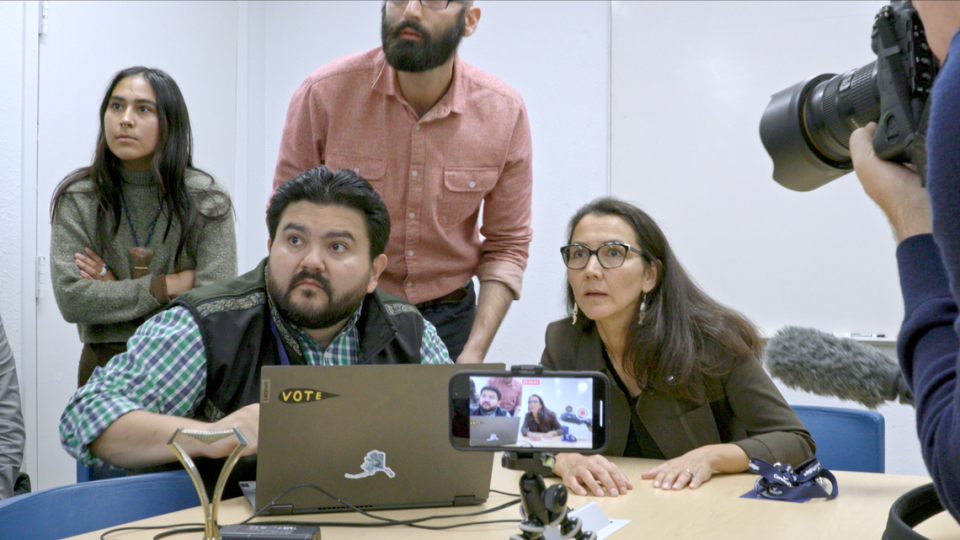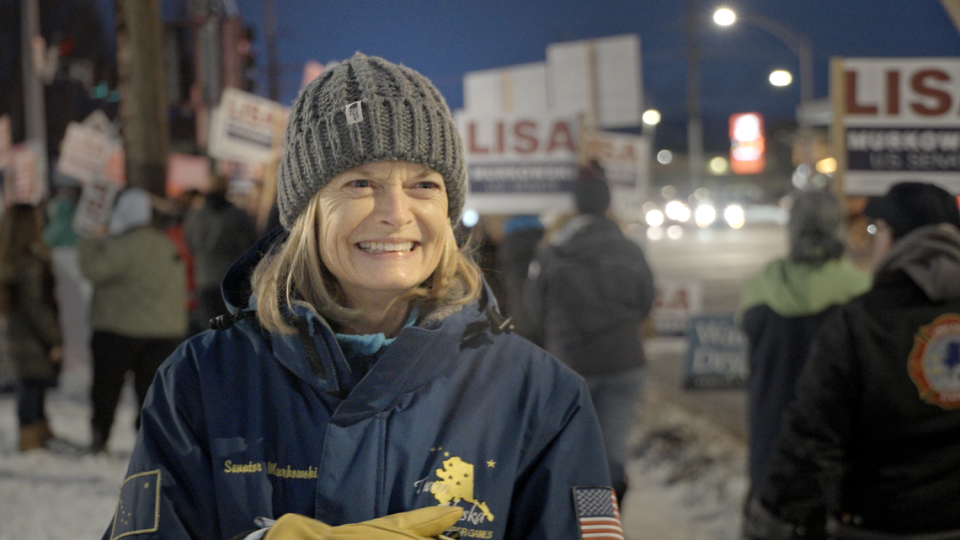New film explores Alaska’s experience with open primaries, ranked choice voting | Opinion

Having open primaries and ranked choice voting isn’t just some gimmick meant to upend one political party over the other.
It’s a fundamental and revolutionary change to how we choose our elected officials in a way that’s meant to counteract our coarsening political discourse, more deeply engage all voters, open elections up to more candidates and encourage elected officials to make sound decisions based on what’s best for constituents, not what might be used against them in a primary.
“Because the way our system is set up, these primaries, where it’s so heavily tilted to one party or the other, the elections are already called before you even get to a general election in a lot of races, which is a lot different than it was 20 years ago,” filmmaker AJ Schnack told me in a video interview.
Schnack’s new documentary, “Majority Rules,” about open primaries and ranked choice voting in the 2022 elections in Alaska, is coming to Boise for a special screening July 17 at The Flicks. Schnack will be on hand for the screening.
The movie should be particularly informative for Idaho voters.
The Open Primaries Initiative looks like it’s headed for the November ballot in Idaho. It asks voters to approve a new system of open primaries and a four-way ranked choice voting general election.
It’s the same system that Alaska voters approved in 2020 and put into action during the 2022 elections.
If it makes it onto the ballot in Idaho and is approved by a majority of voters, the Open Primaries Initiative would open the primary election to all candidates, regardless of political party or affiliation.
From the primary, the top four vote-getters would go on to the general election in November with a “ranked choice voting” system, in which voters rank their choice of candidate by ordered preference.
If no candidate wins a majority of the votes, the last-place finisher is eliminated, and their votes go to each voter’s second-choice candidate. That process is repeated until two candidates remain. The candidate with more votes wins.
Idaho’s Republican primary is closed to only registered Republicans, meaning some 264,000 unaffiliated voters and 126,000 Democratic have no vote. In Idaho, many elections are decided in the primary, often between one candidate who is a more traditional Republican and one who is more extreme.
In California, where there are open primaries but just two candidates in the general election, the general is usually just two Democrats — one more moderate and one more liberal.
Note that it’s the Democrats in California who oppose ranked choice voting. The dominant party doesn’t want it.
“One of the things that has been so fascinating making the film is just to see in different states that the party that believes that they have figured out the system are always the ones that hate the idea that we were going to change to open primaries and ranked choice voting,” Schnack said. “It’s not about R’s or D’s; it’s literally whoever thinks that they know how the system works and they don’t want the change.”

Ranked choice criticisms
Ranked choice voting is not without criticism, and opponents in Alaska are trying to get a measure on the ballot in November to repeal it. (In 2022 the system famously led to Sarah Palin losing a special election to replace a U.S. House member.)
One of the criticisms is that it’s too confusing, and that voters would have to research a bunch of candidates for a primary and then research the four candidates in the general election before making an informed decision.
“I think that the ‘it’s too confusing’ argument is, I find it one of the weaker arguments,” Schnack said.
Schnack said we make ranked choices every day, such as a group of office workers deciding what to have for lunch. Having a menu instead of just a binary decision opens up the options for voters, and voters certainly should be smart enough to rank their choices of candidates.
“That just to me makes so much sense that you could vote for who you really believe reflects your values, that’s your top choice,” Schnack said. “But your No. 2, it’s like, ‘OK, I can live with this person if they’re the person who’s probably going to be the choice in the end between these last two people standing.’”
I actually think the “too confusing” argument is a tell: It tells you that opponents of ranked choice voting are admitting that they think voters don’t really think about the issues and policy positions — they simply look at the letter at the end of a name and vote the party.
Because the stakes are higher, ranked choice voting forces people to look at where the candidates stand on the issues.

Make the general election matter
Schnack retold the story of a Libertarian candidate in one race in Alaska who made it to the final four in the general election and was participating in a debate. Schnack asked the debate moderators a question: If it hadn’t been for the top four primary, would the Libertarian candidate have even been in the debate. The answer? Probably not. Debate organizers likely would have invited just Republican and Democratic candidates.
“One of the (key things for me) was just the aspect of encouraging more voices to be involved in the process when you came to the general election,” Schnack said. “And certainly there are a lot of people younger than I am, I think, who would like to be involved in and have more voice in the system that are often kind of locked out, because we really do have this binary choice where we’re only going to have whoever the Republican is and whoever the Democrat is.”
Schnack said it’s still too early to measure the success of open primaries and ranked choice voting, and not enough states are doing it to tell whether it’s the solution, but it’s promising.
“I think what we do know is that we are largely dissatisfied with the system as it exists now, and I think, having covered it now for the last two years, it’s worth the large-scale experiment to see if this is a system that is better,” Schnack said.
Come see for yourself when the movie plays at The Flicks on July 17 and then stick around to ask Schnack some questions.
“I think what the film is saying is that there is a possibility of doing things differently,” Schnack said. “And if we do things differently, where a candidate doesn’t feel beholden to party interests, if they feel like they can act in the best interests of their constituents, no matter who they may be across the political spectrum, is that a better system for Idaho? For Alaska? For America generally.”
If you go
A special screening of “Majority Rules” is scheduled for 7 p.m., Wednesday, July 17, at The Flicks, 646 Fulton St., Boise.
A panel discussion will be after the film with director-writer AJ Schnack, former Idaho Gov. Butch Otter, former state Sen. Marv Haggard and Idahoans for Open Primary campaign manager Ashely Prince.
Tickets are $12 in advance at The Flicks box office or at The Flicks online store.


